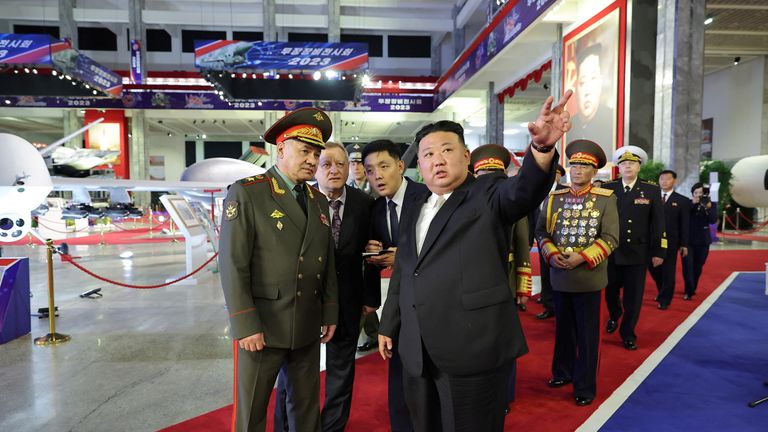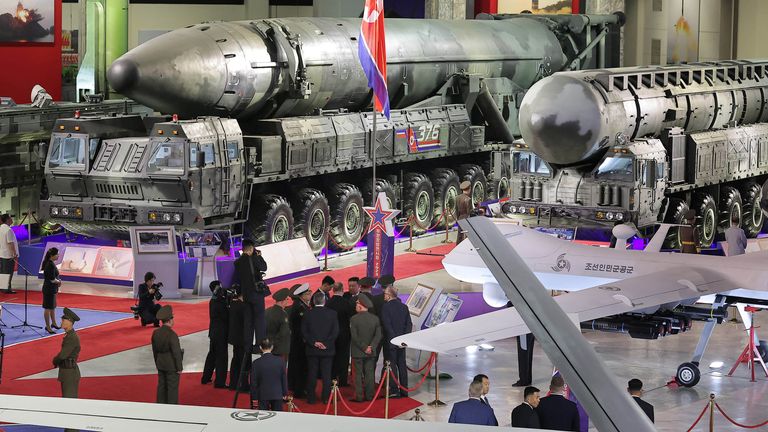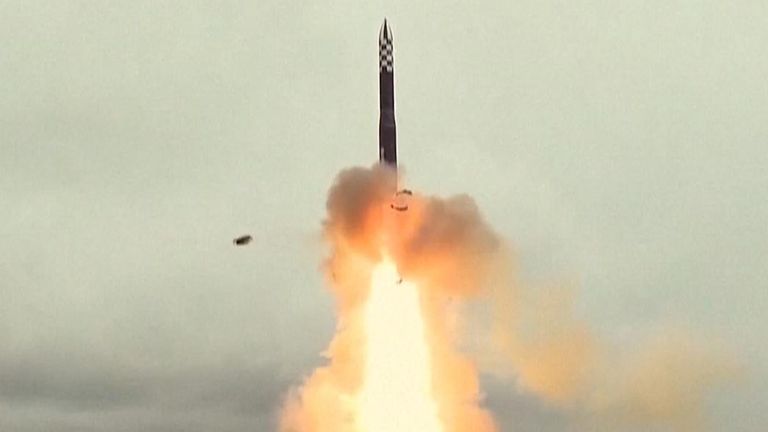Kim Jong Un shows off banned ballistic missiles to Russia’s defence minister

[ad_1]
Kim Jong Un has showed off banned ballistic missiles to Russia’s defence minister during his visit to North Korea.
Sergei Shoigu’s trip coincides with the 70th anniversary of the Korean War’s end, which is referred to in Pyongyang as Victory Day.
He is the first Russian defence minister to enter North Korea since the fall of the Soviet Union.
‘Matters of mutual concern’ discussed – live updates
Chinese officials were also part of the delegation, making them the first prominent visitors to the isolated state since the coronavirus pandemic.
All three countries are now pledging to boost ties, united by their rivalry with the US.
Kim’s missiles were banned under UN Security Council resolutions that had initially been adopted with Chinese and Russian support.
The North Korean leader was given a letter from Russian President Vladimir Putin – and according to state media, Kim “repeatedly expressed belief that the Russian army and people would achieve big successes in the struggle for building a powerful country.”
And while the KCNA news agency didn’t explicitly refer to the war in Ukraine, North Korean defence minister Kang Sun Nam reportedly said he fully supported Moscow’s “battle for justice”.
Read more on Sky News:
Is India about to legalise gay marriage?
Prisoner’s Shawshank-esque jailbreak
Kim and Shoigu’s tour of ballistic missiles is being regarded as a significant development by analysts, as it suggests that Russia is now accepting of North Korea’s nuclear programme.
Ankit Panda from the Carnegie Endowment for International Peace described the tour as “remarkable”, adding: “We’ve come a long way from when North Korea would avoid showing off its nuclear capabilities when senior foreign dignitaries from Russia and China were in town.
“The personal tour for Shoigu – and Shoigu’s willingness to be photographed with Kim in the course of this tour – is evidence that Moscow is complacent with North Korea’s ongoing nuclear modernisation.”
Other geopolitical experts believe Moscow may support Pyongyang more openly in the future.
[ad_2]


